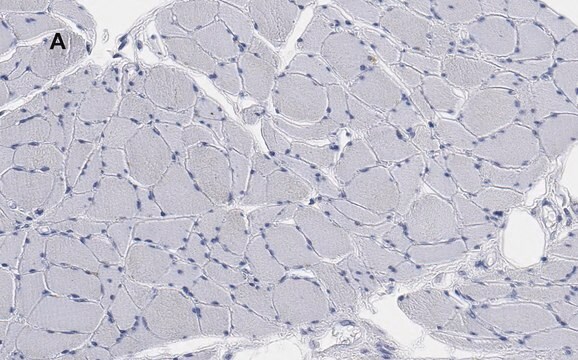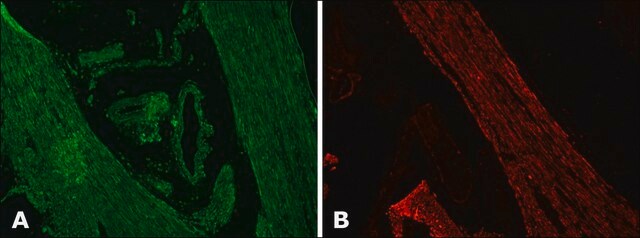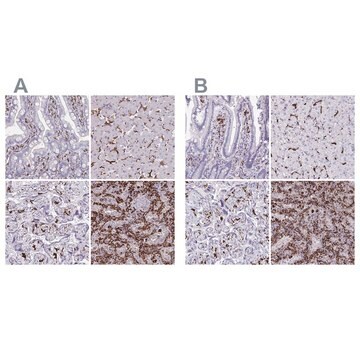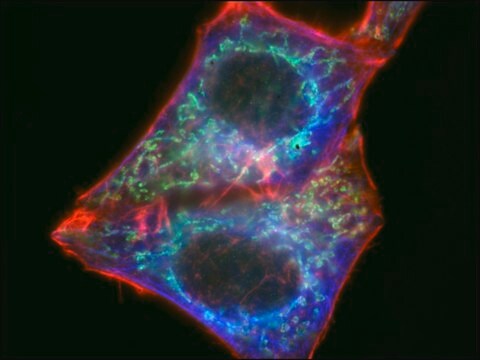SAB4200707
Anti-Desmin antibody, Mouse monoclonal

clone DE-U-10, purified from hybridoma cell culture
Synonyme(s) :
Anti-DES
About This Item
Produits recommandés
Forme d'anticorps
purified from hybridoma cell culture
Niveau de qualité
Type de produit anticorps
primary antibodies
Clone
DE-U-10, monoclonal
Forme
buffered aqueous solution
Poids mol.
antigen ~55 kDa
Espèces réactives
rat, rabbit, hamster, porcine, goat, bovine, chicken, toad, sheep, mouse, human
Validation améliorée
independent
Learn more about Antibody Enhanced Validation
Concentration
~1.0 mg/mL
Technique(s)
immunoblotting: 0.5-1 μg/mL using whole extract of mouse myoblast C2C12 cells
immunofluorescence: 2-5 μg/mL using mouse myoblast C2C12 cells
immunohistochemistry: 2.5-5 μg/mL using heat-retrieved formalin-fixed, paraffin-embedded Human Appendix
microarray: suitable
Isotype
IgG1
Numéro d'accès UniProt
Conditions d'expédition
dry ice
Température de stockage
−20°C
Modification post-traductionnelle de la cible
unmodified
Informations sur le gène
human ... DES(1674)
mouse ... Des(13346)
rat ... Des(64362)
Catégories apparentées
Description générale
Immunogène
Application
- immunoblotting
- immunofluorescence
- immunohistochemistry
- microarray
Actions biochimiques/physiologiques
Forme physique
Clause de non-responsabilité
Vous ne trouvez pas le bon produit ?
Essayez notre Outil de sélection de produits.
Code de la classe de stockage
10 - Combustible liquids
Point d'éclair (°F)
Not applicable
Point d'éclair (°C)
Not applicable
Faites votre choix parmi les versions les plus récentes :
Certificats d'analyse (COA)
Vous ne trouvez pas la bonne version ?
Si vous avez besoin d'une version particulière, vous pouvez rechercher un certificat spécifique par le numéro de lot.
Déjà en possession de ce produit ?
Retrouvez la documentation relative aux produits que vous avez récemment achetés dans la Bibliothèque de documents.
Notre équipe de scientifiques dispose d'une expérience dans tous les secteurs de la recherche, notamment en sciences de la vie, science des matériaux, synthèse chimique, chromatographie, analyse et dans de nombreux autres domaines..
Contacter notre Service technique








